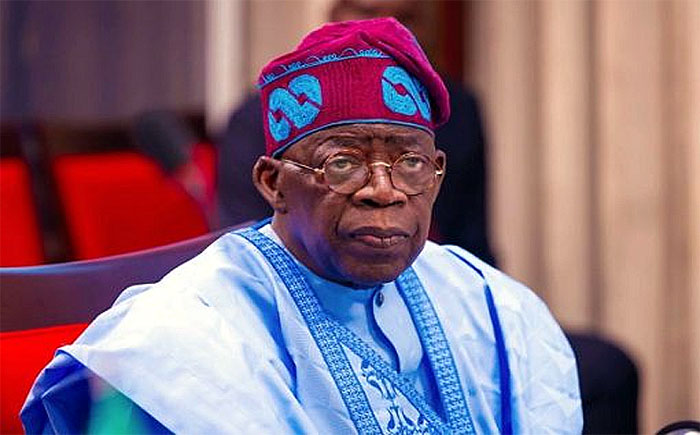
Recent Interpol arrests and the swift restructuring of top security chiefs show President Tinubu’s relentless commitment to safeguarding Nigerians’ lives and property.
This week, the world witnessed a significant development in Nigeria’s fight against insecurity.
Interpol announced the arrest of 11 suspected terrorists, a move that underscores the transnational and highly organized nature of the threats facing our country of many nations.
Within just 48 hours, President Bola Ahmed Tinubu took decisive steps to restructure the country’s security architecture by relieving certain top security chiefs of their duties and appointing replacements.
For many Nigerians, particularly the OÒTU-Yoruba nation, such rapid and seemingly drastic actions may trigger mixed emotions.
Questions arise: Is the government failing to protect lives and property? Is there a deeper problem than what meets the eye?
These are valid concerns. However, to understand the rationale behind these decisions, one must think beyond surface-level assumptions and appreciate the intricate dynamics of national security.
It is crucial to recognize that the backbone of banditry, insurgency, and terrorism in Nigeria is rarely ordinary.
These networks often have financial, political, and logistical backing from powerful entities within and outside the country.
They operate with levels of sophistication that require a proactive, well-coordinated, and uncompromising security response.
It is against this backdrop that President Tinubu’s recent restructuring of the security apparatus should be viewed, not as a sign of weakness, but as evidence of strategic foresight.
The OÒTU-Yoruba nation remembers the era of Late Taoreed Abiodun Lagbaja, whose leadership and decisive actions against insurgency turned threats into mere shadows of the past.
During his life, he systematically decimated insurgent networks, ensuring that attacks on communities were rare, and citizens could live without fear.
It is no coincidence that many of these terrorist networks became more audacious only after his passing.
His legacy reminds us that strong, courageous leadership, combined with well-resourced security institutions, can dramatically reduce the threat of violence and instability.
General Christopher Gwabin Musa, among the most active and capable security chiefs, has been at the forefront of these operations.
Yet, even capable leaders can be limited by structural challenges, bureaucratic inertia, and complex socio-political pressures.
Tinubu’s decision to replace him and others does not diminish their competence; instead, it reflects the president’s insistence on removing all obstacles that may hinder optimal performance.
President Tinubu’s approach to governance is characterized by persistence, courage, and unwavering commitment to duty.
His administration is simultaneously tackling multiple fronts: restructuring the economy, addressing systemic injustices, and rebalancing governance frameworks to ensure fairness across Nigeria’s six geopolitical zones.
Within this multifaceted mandate, he expects his security chiefs to perform at the highest level.
By appointing new leadership, Tinubu is sending a clear message: excuses will not be tolerated, and all necessary support and resources will be provided to those tasked with safeguarding Nigerians’ lives and property.
The new appointments also reflect a careful consideration of national balance, with the replacements drawn from across the geopolitical spectrum to foster inclusivity and collaboration.
For the OÒTU-Yoruba and all Nigerians, the time has come to move beyond skepticism and partisan doubt.
President Tinubu’s actions demonstrate a government fully engaged with the realities of insecurity and committed to delivering tangible results.
Trusting his leadership is not an act of blind loyalty, it is a rational acknowledgment of his consistent, courageous, and strategic governance approach.
It is only by understanding the complexities of these challenges, and the depth of Tinubu’s interventions, that Nigerians can fully appreciate the significance of these recent security decisions.
Every step taken by this administration is designed to maximize the effectiveness of our security institutions, to ensure that no corner of Nigeria is left vulnerable, and that citizens can live and prosper without fear.
In conclusion, the recent restructuring of Nigeria’s security leadership is not merely administrative; it is a deliberate, courageous, and strategic move to ensure that the machinery of state is fully optimized to protect life and property.
President Tinubu’s unwavering commitment, balanced approach, and proactive engagement deserve recognition and support from all Nigerians, particularly the OÒTU-Yoruba community.
In standing with him, we stand for a New Nigeria of Renewed Hope, where security, fairness, and justice prevail.
Faduyilemi Fajimi
Publicity Relationship Officer (PRO),
Iparapo Omoluabi Socio-Cultural Initiative
This has been The Red Hot Report from Pepper-Room. The news that bears it all.
What is your take on this? Air your view in the Comment Box.
www.pepperroom.com.ng #pepperroomnews #pepperroomng #pepperroom
Lagos, Nigeria.
+234 913 161 4181
+234 802 586 9823
+234 803 961 8550
info@pepperroom.com.ng
© 2025 | 🌶️Pepper-Room - Everything Loud, Wild, and Worth Talking About. | All Rights Reserved.
Pepper-Room is not responsible for the content of external sites.